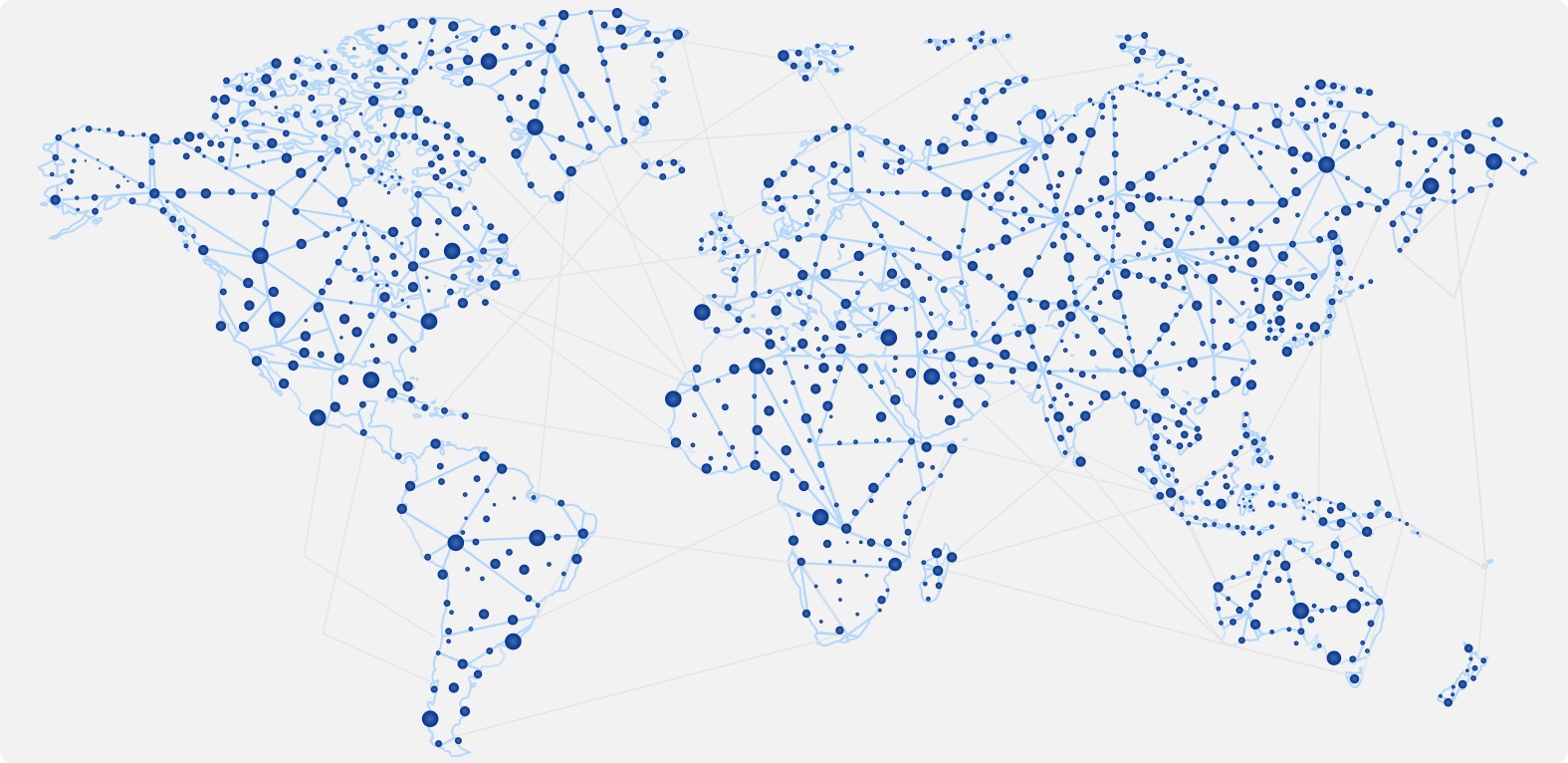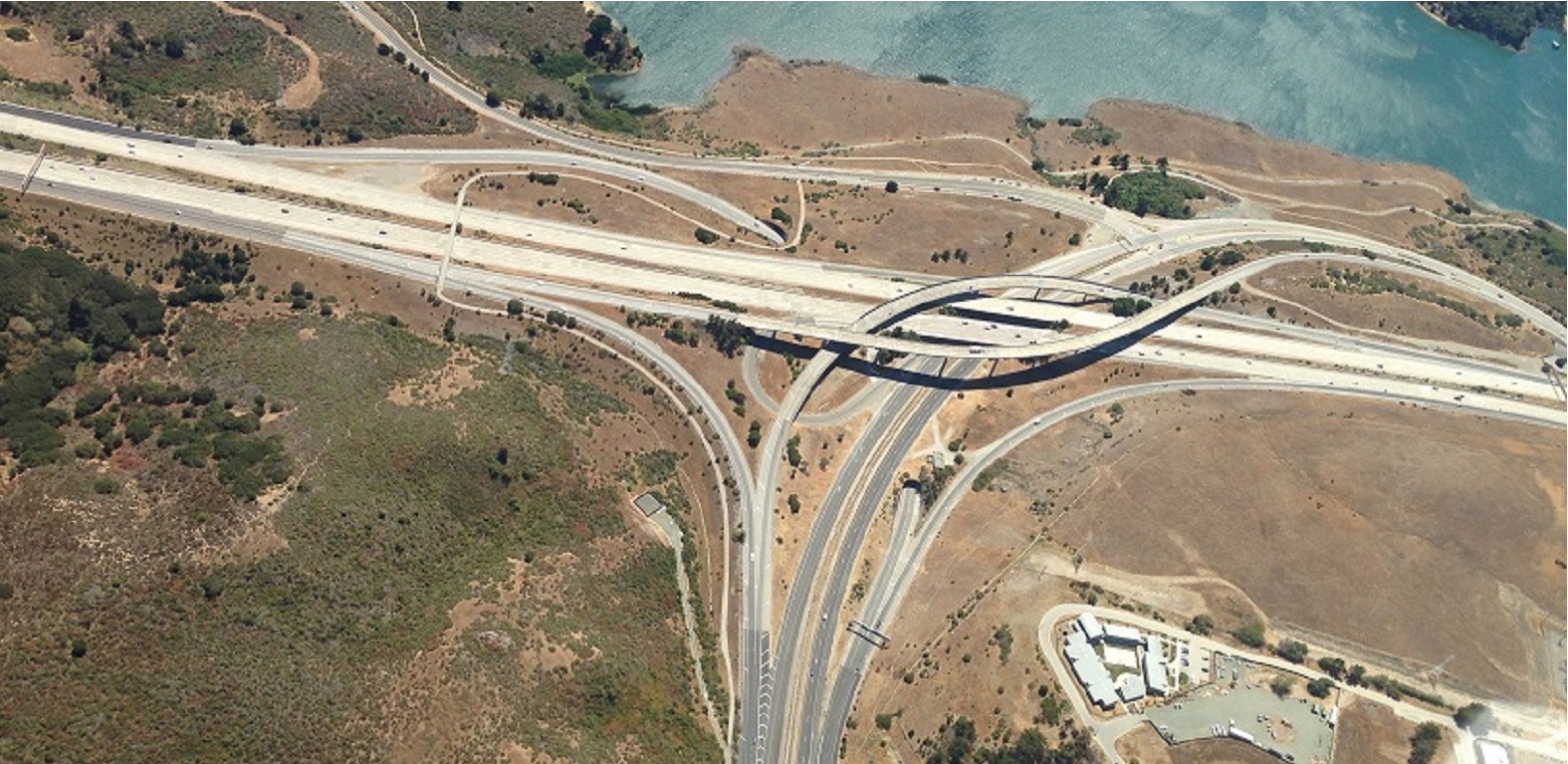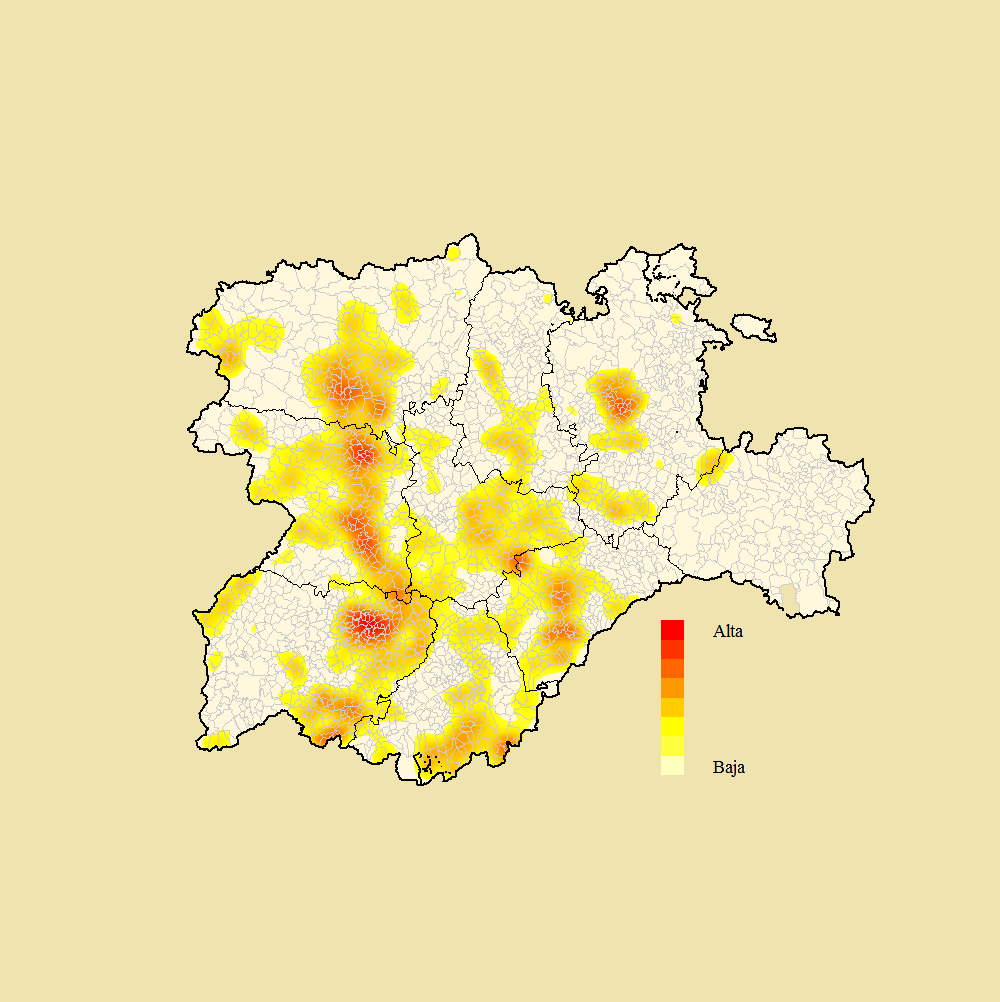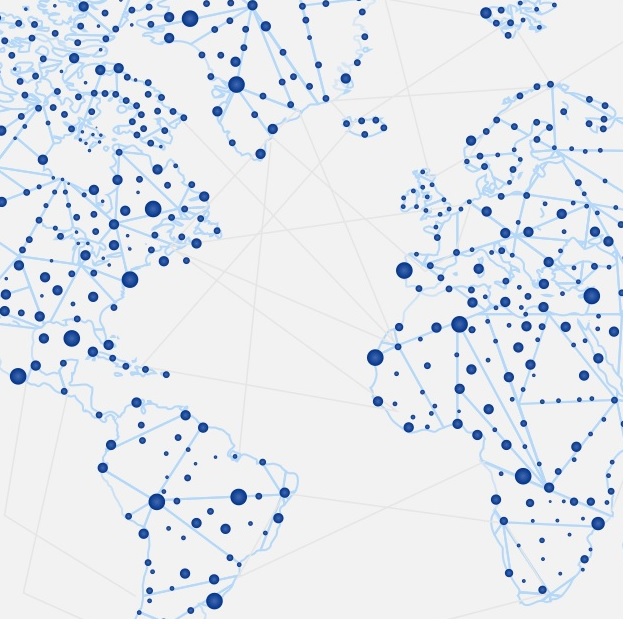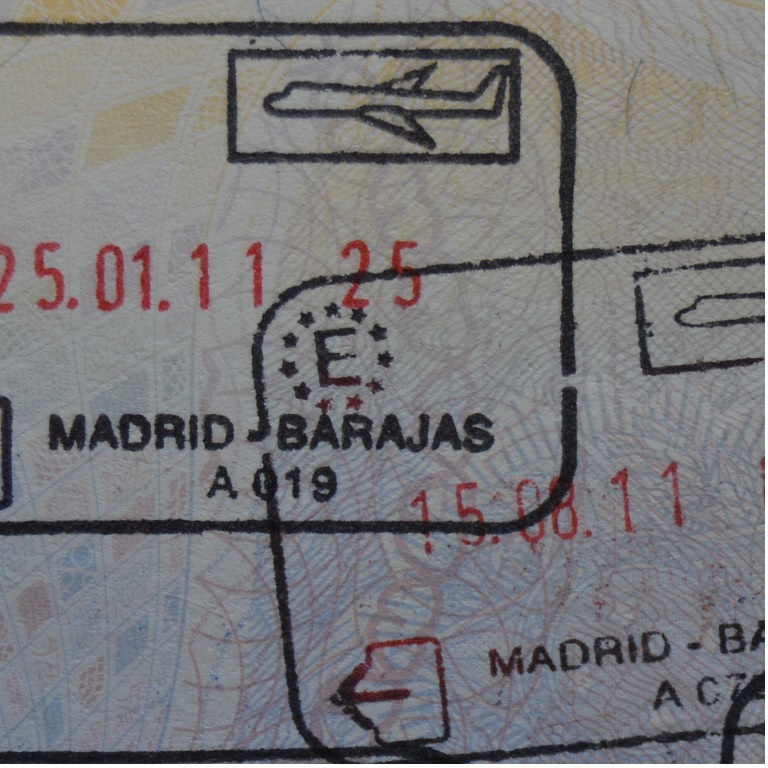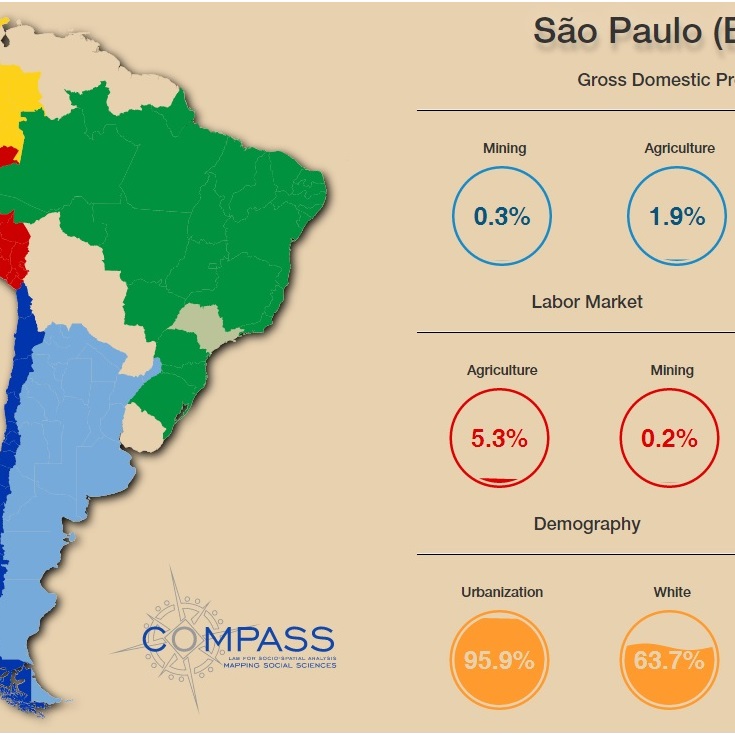Project
The Network State: the spatial governance of public policies in Spain
How are the agencies responsible for the provision of public policies connected? And, how these linkages structure a network of territorial public management that complements and revitalize the division between the central state and the decentralized units? In order to understand these dynamics, this project (Network State) looks at developing a system of representation and measurement of the relative importance of Spanish municipalities within an integrated network of public management.
Our goal, therefore, is to develop indicators of the relative weight of every place in terms of public management in Spain. In order to achieve this purpose, we consider (with a single criteria and classification method), the position of each municipality in different management networks represented by selected sectorial policies in Spain. Such information will be gathered and systematized through the analysis of eight different national public policies: social security, health, employment, development, tax, citizenship security, defence and justice. A range of indicators will be developed for each public policy:
- The location of different management levels (regional agencies, provincial directories, local offices, etc.);
- How each locality is hierarchically connected into the network; and
- The intensity of flows between centres of public policy management.
The methodology employed will be composed by the analysis of official records and census data and treated using different research methods. Many techniques will be used, among others: multivariate analysis, social network analysis, both combined to spatial models and methods as well as visual tools for representing data (graphs, charts and maps). For this precise reason, this project is focused on two strategies for the presentation and interpretation of results. On the one hand, it is based on a strong visual dimension that facilitates the exploration and the recognition of patterns in public policy networks. On the other, it relies on more sophisticated statistical techniques in order to establish relationships and synthetic conclusions about the structure of the services delivered.
The concrete expected results for this project are:
- A municipal level database on public management in Spain (in general) as well as for each of the eight sectoral policies individually: social security, health, employment, development, tax, citizenship security, defence and justice.
- A web portal responsible for the diffusion, in an accessible and for a broad audience, of the research results.
- The publication of academic articles and of the Atlas of the Public Management Networks in Spain
This research project is a collaborative effort of CompassLab and the Political Science Area of the University of Salamanca.
- Title:The Network State: the spatial governance of public policies in Spain.
- Categories:Public Policy, Public Policy Networks, Subnational Politics, Municipalities, Spain
- Techniques: Web Mapping, Spatial Analysis, Network Analysis, Network Typologies
- Researchers: Rodrigo Rodrigues-Silveira (coord.), Hugo Marcos Marne, Ignacio Paredero Huerta and Fernando Pinto Hernández
- Duration: 2016-2021
- Acronym:NetState
Note
Visit the web portal of the project "The Network State: the spatial governance of public policies in Spain."(under construction)
